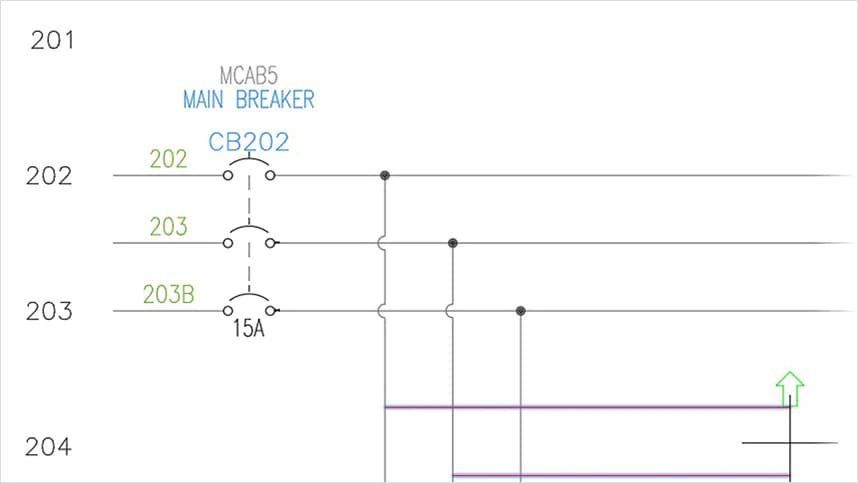Expert Electrical Design Solutions for Safe and Effective Equipments
The duty of specialist electric design solutions is progressively vital in ensuring the security and effectiveness of modern systems that develop the foundation of structure facilities. Through strenuous analyses and accurate load estimations, these experts not just assure compliance with regulative standards yet additionally improve system efficiency and sustainability. This discussion will explore the vital elements of electric design, the benefits of involving competent professionals, and the effects of arising trends in the sector. As we examine these elements, the effect on future advancements in electric systems warrants careful factor to consider.
Importance of Electrical Design
Reliable electrical design offers as the foundation of a structure's framework, making certain the secure and reliable circulation of electric power. A well-structured electrical design contributes to the total power effectiveness of a center, which can lead to significant cost savings over time.
Furthermore, it fits the growing need for sophisticated technologies and clever systems that boost individual experience and operational performance - industrial electrical design. By incorporating energy-efficient illumination, trusted power sources, and proper circuit formats, electrical design facilitates the seamless procedure of devices and machinery vital to daily tasks
Additionally, detailed electrical design considers future scalability, enabling for very easy upgrades and alterations as modern technology develops. This forward-thinking method not just enhances the present system but also shields the financial investment made in the infrastructure. Basically, careful focus to electrical design is important for attaining a successful, lasting, and safe atmosphere in any type of building or remodelling endeavor.
Key Components of Design Services
An extensive electrical design solution incorporates numerous essential parts that make sure the efficient and dependable execution of electrical systems. At the structure is the assessment of project demands, which consists of understanding customer specifications, governing standards, and ecological considerations. This initial phase is critical for customizing the design to satisfy specific demands.
Following, precise tons computations are done to figure out the electric demands of the system. This entails evaluating the power demands of all attached tools and ensuring that the design can fit potential future developments.
The selection of proper products and equipment is an additional necessary element. This includes selecting premium parts that comply with industry standards and fit the task's budgetary constraints.
Moreover, detailed schematic representations and formats are developed to envision the system's style, helping with clear communication among stakeholders.
Last but not least, a complete evaluation and recognition process is vital to make sure that the design fulfills safety criteria and functional efficiency before implementation. By incorporating these components, electrical design solutions produce durable systems that function effectively and securely within their intended atmospheres.
Advantages of Professional Competence
Engaging expert competence in electric design services brings considerable benefits that enhance project end results. Experts have extensive knowledge of the newest devices, methodologies, and modern technologies, guaranteeing that layouts are not just cutting-edge but likewise sensible and reliable. Their experience permits the recognition of possible issues early in the design procedure, reducing pricey modifications and delays.
Furthermore, expert electrical developers are proficient at optimizing system performance while sticking to finest techniques (electrical load calculation). They utilize sophisticated simulation and modeling strategies to predict system behavior under various conditions, causing more trusted and effective styles. This optimization equates to power cost savings and enhanced operational effectiveness, which are critical in today's sustainability-focused setting
Cooperation is another essential benefit; skilled designers work closely with other experts-- engineers, engineers, and contractors-- to electrical engineering design services make certain that all elements of the project line up flawlessly. This interdisciplinary method promotes efficient interaction and ultimately causes a natural and useful electric system.
Regulatory Compliance Considerations

Specialists in electric design need to have a detailed understanding of these guidelines, making sure that all elements meet needed security and performance requirements. Routine updates and amendments to laws necessitate ongoing education and awareness within the area. Non-compliance can result in pricey delays, redesigns, and legal repercussions, adversely affecting task timelines and budgets.
Incorporating compliance considerations from the beginning of a job enables designers to identify prospective issues early, assisting in smoother approvals and examinations. Involving expert electrical design solutions ensures that all regulatory standards are fulfilled, thus reducing risks and advertising a much safer setting for both customers and drivers. Eventually, the emphasis on governing compliance fosters trust fund and integrity, crucial aspects in the effective delivery of electrical design tasks.
Future Patterns in Electrical Design

An additional arising trend is the emphasis on renewable resource sources. As the demand for lasting solutions grows, electrical design will increasingly integrate solar, wind, and power storage systems. This change not only straightens with worldwide sustainability goals yet likewise improves power durability.
In addition, the surge of electric automobiles (EVs) requires a reassessing of electric facilities, motivating designs that accommodate EV billing stations in domestic and industrial areas. In addition, improvements in energy-efficient elements and materials will certainly continue to play an essential function in lowering power intake and lessening ecological influence.
Last but not least, the fostering of digital doubles in electric design allows for enhanced simulation and modeling, allowing designers to imagine and optimize systems before implementation. These fads collectively indicate a transformative change toward much more intelligent, sustainable, and efficient electric design techniques.
Conclusion
To conclude, professional electrical design solutions play an essential function in guaranteeing the safety and security and effectiveness of structure facilities. By prioritizing comprehensive assessments, specific lots computations, and the usage of top notch materials, these solutions facilitate conformity with governing criteria and reduce risks connected with electrical failings. The assimilation of sophisticated innovations and lasting techniques boosts system performance and integrity, eventually contributing to an extra energy-efficient and resilient constructed environment.
The function of professional electrical design solutions is progressively vital in guaranteeing the security and effectiveness of modern systems that develop the foundation of structure facilities. Effective electrical design offers as the backbone of a building's infrastructure, ensuring the risk-free and reliable distribution of electric power.A comprehensive electrical design service incorporates several essential elements that make sure the efficient and trustworthy application of electric systems. Electric systems must abide with local, state, and national codes, including the National Electrical Code (NEC) in the United States, which sets the criterion for safe electrical design.
As the need for sustainable remedies grows, electric design will progressively include solar, wind, and energy storage systems.